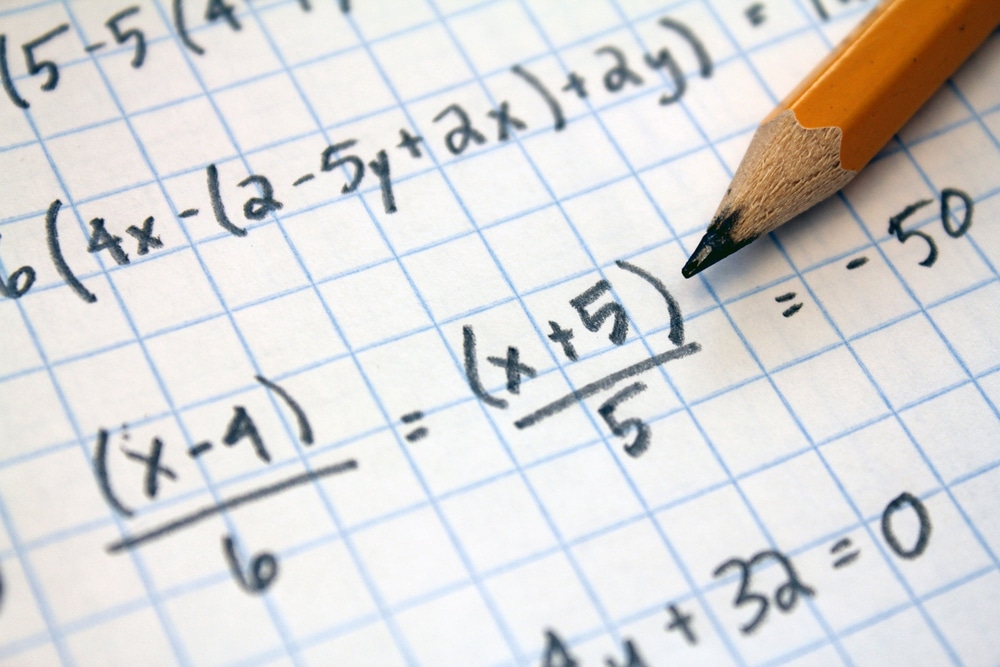12 Tips to Win the Harvard-MIT Mathematics Tournament (HMMT)
Winning the Harvard-MIT Mathematics Tournament (HMMT) is a prestigious achievement that many students aspire to. This competition brings together some of the brightest young mathematicians to solve challenging problems and showcase their skills. Founded in 1989 by Harvard and MIT students, the competition aims to engage young minds with stimulating problem-solving in a collaborative setting.
HMMT’s prestige stems from the students it attracts and its affiliation with Harvard and MIT. Success in the competition not only showcases strong mathematical foundations but also a passion for problem-solving that is highly valued by top educational institutions. Past HMMT participants have gone on to pursue higher education at prestigious universities like MIT, Stanford, and Cambridge.
Here are 12 useful tips to enhance your preparation and increase your chances of success. Whether you’re a seasoned competitor or a newcomer to the world of mathematical competitions, these insights will help you approach the HMMT with confidence and a strong foundation. Let’s get started on the path to achieving your goal.
1. Master the Fundamentals of Problem-Solving
To win the Harvard-MIT Mathematics Tournament, your first step should be to solidify your understanding of mathematical problem-solving fundamentals. This means getting comfortable with the core principles of mathematics, including algebra, geometry, calculus, and combinatorics. Why is this important? Because every complex problem you’ll encounter is built upon these basic building blocks.
Start by reviewing your class notes and textbooks to refresh your memory on these subjects. Then, push yourself further by tackling problems that require applying these concepts in innovative ways. Websites like the Art of Problem Solving offer a wealth of resources that can help you strengthen your foundational skills.
Learn how to approach problems logically, how to break down complex problems into more manageable parts, and how to apply known concepts in new situations. By honing these skills, you’ll be better prepared to tackle the diverse challenges you’ll face at the tournament.
2. Specialize in a Specific Mathematics Area
It’s smart to become particularly skilled in one area of mathematics. The HMMT covers various fields, such as algebra, geometry, combinatorics, and number theory. While a broad understanding is essential, deep expertise in one area can give you a significant advantage.
Why focus on one area? In team competitions, having a specialist in each area means your team can tackle any problem with confidence. Individually, it allows you to score highly in specific sections of the tournament, contributing valuable points to your overall score.
3. Practice with Past HMMT Problems
Practicing with past Harvard-MIT Mathematics Tournament problems is a key strategy to prepare effectively for the competition. This approach gives you a direct insight into the format, difficulty, and types of questions you can expect. Start by gathering as many old HMMT exams as you can find. These are usually available on the HMMT website.
Working through past problems allows you to identify your strengths and weaknesses, enabling you to focus your study efforts more efficiently. Spend more time improving your weaker areas while continuing to practice your strengths. Additionally, practicing under timed conditions helps you develop a sense of timing, which is crucial in the HMMT as it involves solving problems efficiently. By doing so, you’ll be better prepared to manage your time effectively during the actual competition, ensuring you can attempt as many problems as possible.
4. Form a Balanced Team
A balanced team, where each member brings expertise in a different area of mathematics, can significantly enhance your collective performance. This strategy ensures that your team can confidently approach any problem, regardless of the topic.
Building a balanced team means identifying potential members who are passionate about mathematics and bring diverse skills to the table. For example, if you excel in algebra, look for teammates who are strong in geometry, combinatorics, and number theory. The idea is to cover as many areas of mathematics as possible so that when you face a wide range of problems during the tournament, someone on the team will be ready to tackle them.
5. Develop Time Management Skills
One of the most critical aspects of succeeding in the Harvard-MIT Mathematics Tournament is developing strong time management skills. The ability to wisely allocate your time during the competition can make a significant difference in your performance. With a limited amount of time to solve a range of challenging problems, knowing how to prioritize and efficiently work through questions is key.
Start by practicing with timed tests. This will help you get a feel for the pace you need to maintain during the actual tournament. Pay attention to how long you spend on each problem and learn to recognize when it’s time to move on to the next question. It’s important not to get stuck on a single problem for too long.
6. Learn from Solutions of Past Problems
A crucial step in your journey to win the Harvard-MIT Mathematics Tournament is not just to practice past problems, but also to thoroughly understand their solutions. This is where a lot of learning happens. When you study the solutions, you get to see not just how a problem can be solved, but also the thought process and strategies used by successful competitors.
After you’ve attempted a problem, compare your approach with the official solution or those provided by experienced competitors. This comparison can reveal new techniques or shortcuts you hadn’t considered. It’s also an excellent way to identify gaps in your understanding and to correct any misconceptions.
7. Engage in Mock Competitions
Participating in mock competitions is an invaluable strategy as you prepare to win the Harvard-MIT Mathematics Tournament. Mock competitions simulate the pressure and environment of the actual event, providing you with a realistic practice experience. They help you assess your preparation level, refine your time management skills, and identify areas that need more focus.
Organize or join mock competitions with your team or other aspiring participants. This not only gives you practice in solving problems under timed conditions but also allows you to experience the dynamics of teamwork in a competitive setting. You can create these simulations by using past HMMT problems or other math competition questions.
Mock competitions also help in reducing exam-day anxiety. The more you practice in a setting that mirrors the actual competition, the more confident and comfortable you’ll become. This familiarity with the competition format and the experience of working under similar stress levels can significantly enhance your performance on the actual day.
8. Prioritize Team Communication
Effective communication within your team is vital to perform well at the Harvard-MIT Mathematics Tournament. Good teamwork and the ability to share ideas clearly and efficiently can significantly enhance your group’s problem-solving capabilities. This is because math competitions like HMMT often include problems that are designed to be solved collaboratively, where the insight of each team member can contribute to finding a solution.
To foster strong communication, start by establishing regular team meetings where you can discuss strategies, solve problems together, and review each other’s work. These sessions are not only for academic preparation but also for building rapport and understanding how each member communicates.
During your practice sessions, focus on explaining your thought processes clearly when solving a problem. This practice will be invaluable during the competition, where you’ll need to quickly and effectively share strategies and solutions with your teammates. Also, be open to listening to your team members’ perspectives, as a different approach might offer a more efficient solution.
9. Utilize Online Resources and Forums
In your journey to win the Harvard-MIT Mathematics Tournament, online resources, and forums can be invaluable tools. The internet is filled with communities and platforms dedicated to mathematics enthusiasts at all levels. These resources offer a plethora of problems to solve, tutorials to learn from, and forums where you can ask questions and share insights.
Start by exploring websites like the Art of Problem Solving (AoPS), which not only provides a comprehensive collection of mathematical problems but also hosts vibrant forums where you can interact with fellow math enthusiasts. Here, you can find discussions on various mathematical topics, solutions to complex problems, and advice on competition strategies.
Another useful platform is Khan Academy, which offers tutorials on a wide range of subjects, allowing you to brush up on any areas where you feel less confident. YouTube also has numerous channels dedicated to mathematics, where educators and mathematicians share their knowledge and problem-solving techniques.
10. Focus on Mental and Physical Health
Your mental and physical health plays a significant role in your ability to perform well at the Harvard-MIT Mathematics Tournament. Preparing for such a competitive event can be stressful, and it’s easy to get caught up in endless hours of study and practice. However, neglecting your well-being can lead to burnout, decreased focus, and diminished problem-solving abilities.
To maintain your mental health, ensure you’re setting aside time for relaxation and activities you enjoy outside of mathematics. This could be anything from reading, playing a sport, meditating, or spending time with friends and family. These activities can help reduce stress and keep your mind fresh.
Physical health is equally important. Regular exercise not only improves your overall health but also increases blood flow to the brain, which can enhance cognitive function and concentration. Additionally, be mindful of your sleep patterns. Adequate rest is crucial for memory consolidation, learning, and maintaining optimal performance during study sessions and the competition itself.
Nutrition should not be overlooked either. Eating a balanced diet can provide the energy you need for extended periods of concentration and problem-solving. Try to avoid excessive caffeine or sugar, as these can lead to energy crashes that affect your study routine.
11. Connect with HMMT Alumni for Insights
Reaching out to individuals who have previously participated in the Harvard-MIT Mathematics Tournament can provide you with invaluable insights and advice. Alumni of the tournament have first-hand experience of the competition’s atmosphere, the types of problems posed, and effective strategies for preparation and participation.
Start by seeking out former participants within your school, community, or through online forums and social media groups dedicated to math competitions. Many alumni are eager to share their experiences and offer guidance to new competitors. They can provide tips on how to approach specific problem types, advise on managing stress during the competition, and even share their study materials or favorite resources.
When you connect with HMMT alumni, be prepared with questions. Ask about their preparation process, what they wish they had known before competing, and how they tackled the team and individual rounds. Learning about their mistakes and successes can help you avoid common pitfalls and adopt proven strategies.
12. Stay Updated with HMMT Formats and Rules
Staying well-informed about the latest formats and rules of the Harvard-MIT Mathematics Tournament is crucial for your preparation. The HMMT periodically updates its structure, rules, and types of problems to keep the competition challenging and fair. Being aware of these updates ensures that you and your team can prepare effectively and avoid any surprises on the competition day.
To stay updated, regularly check the official HMMT website and any official communication channels they use, such as emails to participants or announcements on social media platforms. These sources provide the most accurate and up-to-date information about the tournament, including any changes to the competition format, rules, registration deadlines, and problem-solving guidelines.
Also, familiarize yourself with the rules regarding permissible resources during the competition, such as calculators, reference materials, or notes. Knowing what is and isn’t allowed can help you prepare more effectively and avoid any penalties for rule violations.
HMMT 2024
The 2024 schedule for the February tournament begins on Friday, February 16, with early registration and social events, including pizza and ice cream, and mini-events. The competition intensifies on Saturday, February 17, starting with breakfast and registration, followed by the team round, individual subject rounds (Algebra and Number Theory, Geometry, Combinatorics), and the guts round. Educational classes and keynote speakers are scheduled for Sunday, February 18, concluding the weekend’s events.
Participants are expected to adhere to strict rules regarding the use of computational aids, answer formats, and participation eligibility. For example, calculators, books, notes, and other aids are prohibited during the competition. The tournament is open to high school students, with some allowances made for exceptionally strong middle school students. Teams are restricted in size and composition to ensure fair competition, and students may not compete in both the November and February tournaments in the same school year.
Final Thoughts
Keep in mind that success in the HMMT, as with any competition, involves both preparation and the ability to adapt to unexpected challenges. Stay curious, be open to learning from every experience, and remember that each problem you encounter is an opportunity to grow.
Don’t forget to support your teammates and enjoy the process. The friendships and connections you build through this experience can be invaluable to your mathematical journey. Whether you win the tournament or not, the knowledge you gain, the challenges you overcome, and the camaraderie you experience are rewards in themselves.
Good luck, and may your dedication and passion for mathematics lead you to success at the Harvard-MIT Mathematics Tournament and beyond.









































